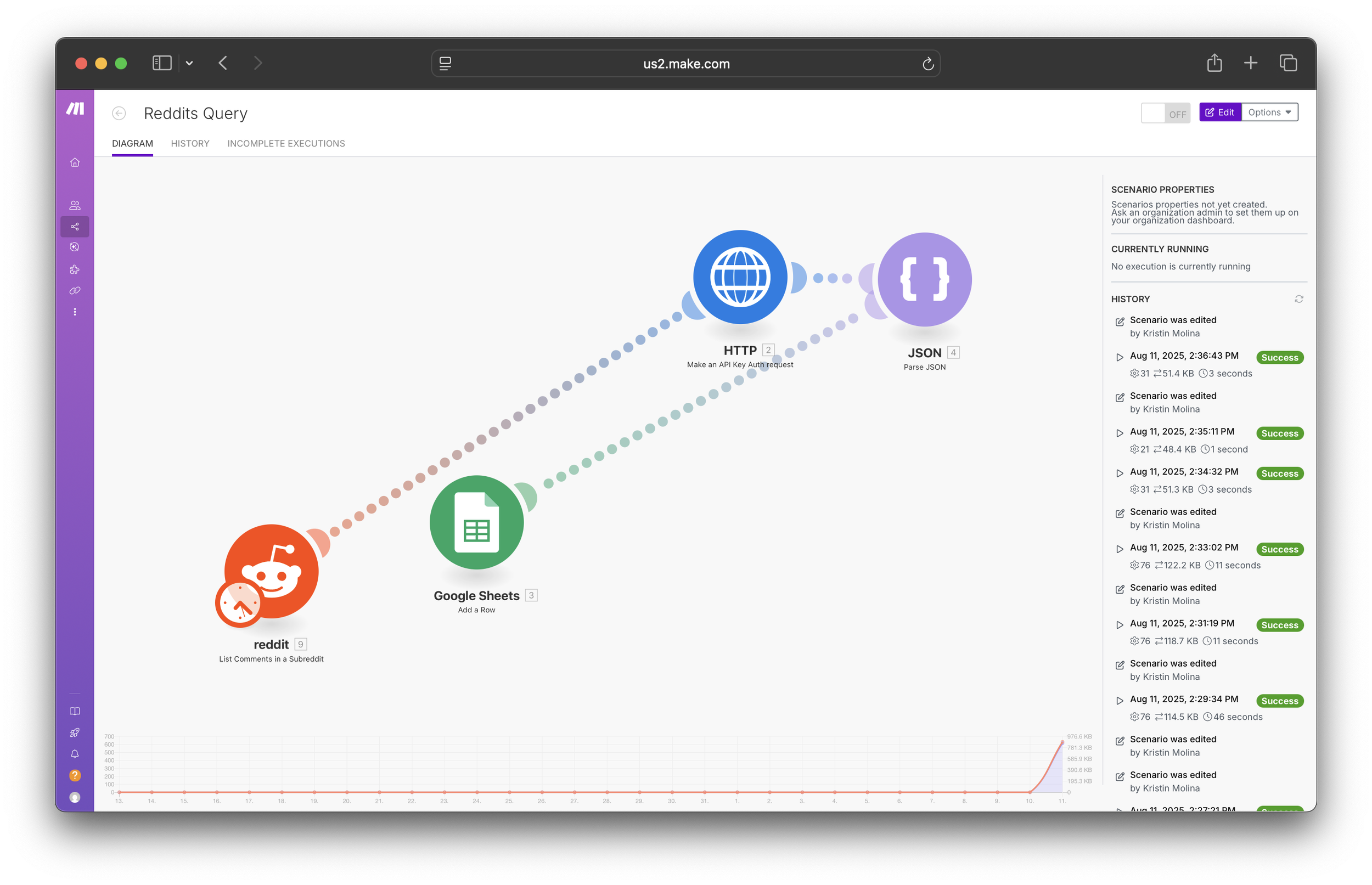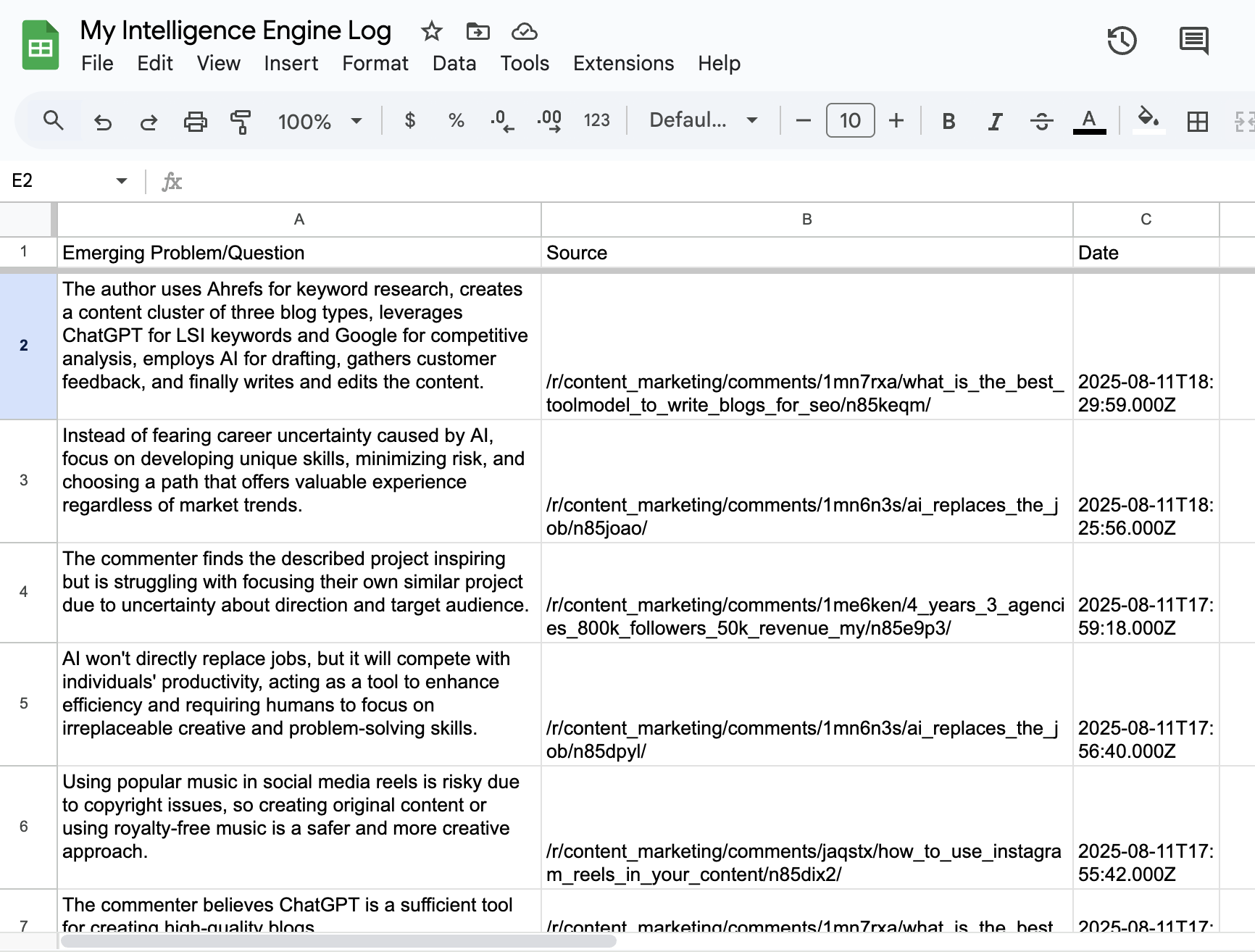Why I’m automating content (and you should too)
I spent this morning trying to automate my content research workflow with Make.com. It will cost me around $40 to complete, it’s not fully operational yet, and I learned more about JSON parsing than I wanted to.
But here’s what became clear: We’re all using expensive, fragmented tools that don’t match how we actually work. Meanwhile, with chatbots and a $10 Make subscription, we can build systems that think the way we think.
The playbook comes first.
Setting up automation takes 20 minutes. But I could only build this workflow because I already had the playbook—15 years of knowing which steps actually matter.
Which steps are your unique sauce? Which are the “bread-and-butter” basics? Which are your best-selling entrées? You can’t automate what you haven’t done manually first.
We’re building reasoning systems, not magic.
My system needs dozens of prompts, each carefully calibrated. We’re automating judgment—teaching machines to process bulk data the way our brains process patterns. It’s harder than any tool vendor admits, but more powerful than they want you to know.
The $200 tools are just retrofits.
Current AI tools are uninspiring because they took existing features and slapped AI on top. “$200/month for AI-powered keyword research” is just keyword research with ChatGPT integrated.
By the time I got my hands on a SEMrush license, I’d already figured out how to replicate what I needed using free tools, plus Claude Pro teaching me how.
Automation is sexy (and we should admit it).
My Reddit monitor can process more conversations in an hour than I could in a week. Automation is intelligent and relentless. Bulk data processing. Pattern recognition. Indicators that support intuition.
Most “AI agents” are just scheduled automations with better marketing. But that’s fine. Automation IS the revolution; we just kept calling it the wrong thing.
Your weird is your differentiator.
I analyze survey questions to predict trends. That’s weird. Someone else might track emoji usage in support tickets. Someone else correlates GitHub commits with content performance.
The “best practices” everyone follows are creating a sea of sameness. Your weird method—the one you’d be embarrassed to explain at a conference—is probably your biggest competitive advantage.
We’re all entrepreneurs now (whether we like it or not).
The barriers are gone. A $40 Make subscription and some API credits can compete with enterprise tools. We’re entrepreneurs by necessity; build your own system or get replaced by one.
Your employer probably won’t pay for your experiments. Do them anyway. The market is full-stop in disruption. The choices sit between controlling our tools or being controlled by them.
There’s still room in the margins.
My initial Reddit analysis captured comments where most were asking basic questions, while a few shared sophisticated workflows. That means there’s still space to carve out a niche. Many of these conversations are still surface-level. Your niche might only be 100 people. That’s enough if they're the right 100.
Don’t give up on finding your gap. It’s probably weirder and more specific than you’re comfortable with.
Find the joy (or at least the absurdity).
There’s something absurd about debugging JSON at midnight to automate finding Reddit comments about content marketing. We’re professional internet explorers, meme archaeologists, trend fortune-tellers. If you’re not finding some joy in this work, you’re taking it too seriously.
My “AI Slop Detector” is ridiculous. It’s also useful.
The Latest Prototypes: Built With Opal.
Let’s encode ourselves into our futures.
My $40 Make.com setup isn’t complete. But it’s mine. And in a world where everyone’s using the same ChatGPT prompts and the same AI tools, that might be the only advantage that matters.
My cross-industry analysis method. Your survey methodology mining. That thing you do that no tool offers because it’s too specific.
We don’t need to settle for expensive, fragmented tools when we can build systems that work just like our brains. This is how we become the disruption instead of waiting for it.



